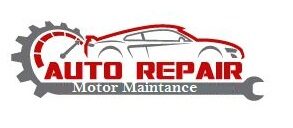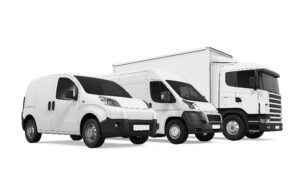The business manager who needs to travel by vehicle as part of his activity (which is quite frequent) can use his personal vehicle for his business trips or take a company vehicle on the business .
Here is a comparative tax study of these two possible solutions for the entrepreneur.
It is considered here that the vehicle used is registered in the passenger car category. If necessary, here is a second additional file: commercial vehicles .
Company vehicle or personal vehicle
Buy or lease a company vehicle with the company
The manager can first of all choose to acquire or rent a company vehicle with his company to make his business trips, and possibly also use it in a personal capacity.
Deductible expenses at company level
The depreciation of a company vehicle (when the vehicle is purchased), or the rent paid (in the event of rental or leasing), are only deductible up to a certain amount. The surplus is not deductible from the taxable result and must be reinstated for tax purposes.
The deduction of the depreciation of private vehicles (PV) is capped at 18,300 euros or 9,900 euros if the vehicle emits more than 200 grams of CO2 per kilometre. The ceiling is exactly the same in the event of rental or leasing of the vehicle.
Then, current expenses related to the company car are deductible in full when they meet the general conditions for the deductibility of expenses. These include fuel expenses, repairs, maintenance, insurance premiums…
Finally, when the company is subject to corporation tax , the tax on company vehicles (TVS) is not deductible from taxable income.
If the head of the company uses the company car for personal purposes, this constitutes a benefit in kind subject to social security contributions and subject to income tax.
The benefit in kind can be assessed on the basis of the expenses actually incurred or on the basis of a lump sum. If the entrepreneur is TNS (majority manager of SARL, associate manager of EURL or individual entrepreneur), the benefit in kind is necessarily assessed according to the expenses actually incurred.
VAT recovery
The VAT paid for the acquisition of a company vehicle cannot be recovered by the company. When the vehicle is rented or leased, the VAT paid on the rents is not recoverable.
The principle is the same for repair and maintenance expenses, VAT is not recoverable.
it is recoverable up to 80% when it comes to diesel or E85 superethanol, and 100% when it comes to LPG.
Vehicles owned or leased by the company that are registered in its name in the category of passenger cars or N1 vehicles are taxable at the TVS.
The executive may also choose, for his business trips, to use his personal vehicle and to reimburse expenses . This is a solution often favored at the start of the activity to limit investments.
Reimbursement of professional expenses
The business manager may claim reimbursement of his expenses according to several methods:
Actual costs (depreciation of the vehicle, fuel costs, repair and maintenance expenses, insurance premiums). With this system, you have to be able to justify the exact amount of the costs;
The amounts received by the entrepreneur as reimbursements of professional expenses are not subject to income tax, whether it is a reimbursement of actual expenses or lump sum mileage allowances. For this, the costs must be justified (see below).
Deductible expenses at company level
When the entrepreneur opts for actual costs, the corresponding expenses are deductible from taxable income. Expenses must be supported by supporting documents (invoices in particular).
The deductibility of the reimbursement of mileage allowances is capped according to a scale provided by the tax authorities. The same is true for the lump sum reimbursement of fuel costs.
Any reimbursement fraction that exceeds these caps is not deductible from the taxable result at company level.
In all cases, travel must be justified. For each trip, you must indicate: the number of kilometers travelled, the date and the purpose of the trip.
Finally, any TVS due is not deductible from taxable income if the company is subject to corporation tax.
VAT recovery
In the event of use of the fixed scale of mileage allowances or the fuel scale, there is no applicable VAT, the recovery is therefore not applicable.
In the event of reimbursement of actual expenses, VAT may be recovered on certain fuel expenses (rules similar to those set out here ).
Company vehicle tax (TVS)
The vehicle registered in the name of the company director in the category of passenger cars or N1 vehicles, and for which the company reimburses costs, is subject to VAT at company level.
A progressive coefficient depending on the number of annual kilometers applies to the calculated gross TVS. The annual mileage must exceed 15,000 km for this coefficient not to be 0%,
Then a reduction of 15,000 euros is applied to the total amount of tax due on all vehicles owned or rented by the business manager and employees.




